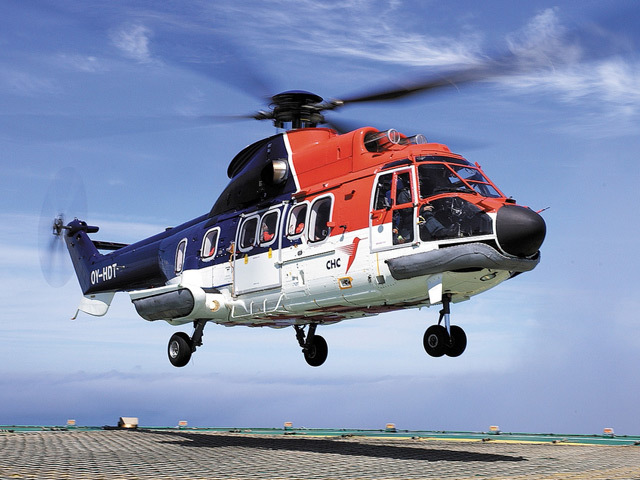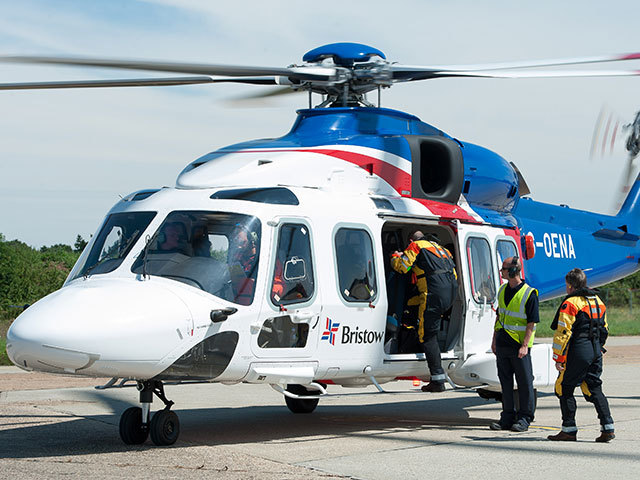
Workers in the North Sea oil and gas industry have made more than 3.6million helicopter trips in just five years.
The new figures have revealed the true scale of helicopter use in the offshore sector – and show almost half of the aircraft operating over the North Sea are the controversial Super Puma model.
The statistics have emerged amid an ongoing debate about helicopter safety in the industry after five major incidents in the last four years.
An average of 739,000 passengers travelled by helicopter in each year between 2008 and 2012, with a total of 3,692,897 worker trips offshore throughout the five-year period.
Almost exactly two-thirds of the total – 2,463,883, or 66.7% – were travelling to or from Aberdeen.
A further 18.2% of the total were from Shetland, with Scatsta Airport accounting for 647,984 journeys and Sumburgh for 26,591.
The remaining 15.1% of the passengers were flying to or from bases at Humberside and Norwich.
The data, published by UK Transport Minister Robert Goodwill in response to parliamentary questions, also reveals that 83 helicopters are used by UK operators in the sector.
A total of 41 are Super Pumas, far more than any other model, with 21 being the Eurocopter AS332 type and a further 20 being the EC225.
The 41 are all based in Aberdeen, accounting for more than two-thirds of the helicopters operating from the city, the others being 15 Sikorsky S92s and four of AgustaWestland AW139s.
There are six Sikorsky S92s at Scatsta and another at Sumburgh, according to the minister’s figures.
At Humberside there are two Sikorsky S76s and three AgustaWestland AW139s, while at Norwich there are three of the AW139 model, two Sikorsky S76s and one Eurocopter AS365 Dauphin.
At North Denes Airport near Great Yarmouth, there are four AgustaWestland AW13s.
Colin Milne, from the British Airline Pilots’ Association, said: “There are hundreds of dedicated helicopter pilots flying the North Sea offshore workforce day-in day-out and helping to ensure a productive oil and gas sector, which has huge positive knock-on effects in the local and national economy.”
The fatal accident inquiry into the 2009 North Sea Super Puma disaster, in which two pilots and 14 passengers died, is due to enter its fourthweek today.
Recommended for you

